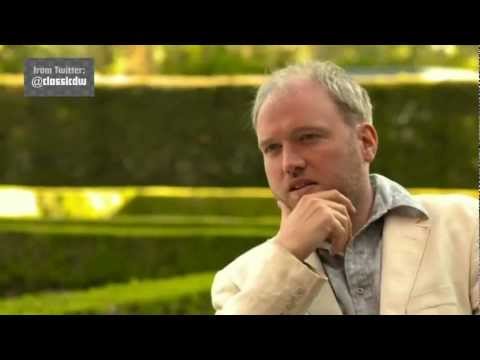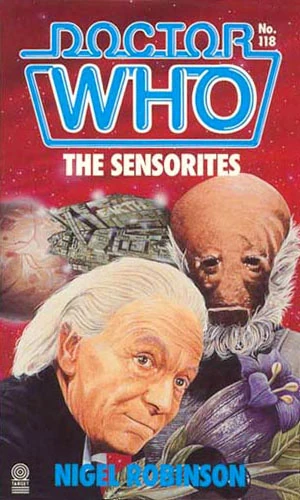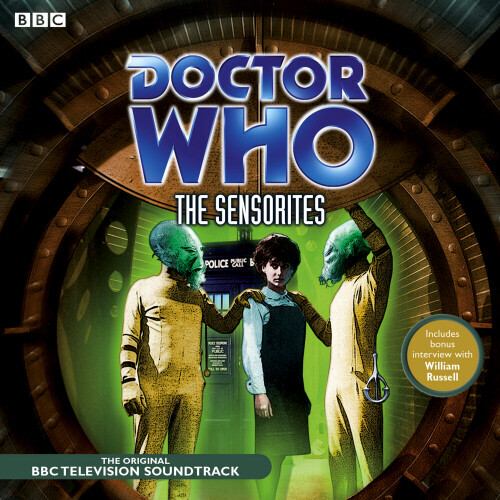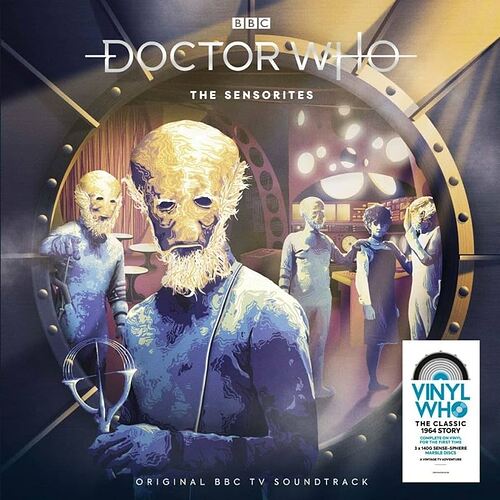THE SENSORITES
Oh you thought it was just Audio Club that had to put up with my walls of text? YOU SHOULD BE SO LUCKY.
I wasn’t gonna start this today because it’s nearly 10pm already but I’m after smoking two bowls of that fake weed you can buy in shops here (whether by placebo or force of will it’s working nicely) and I felt a bit of nostalgic sadness. We lost William Russell today, and I think one of the only things Doctor Who fans can agree on is that the show would not have anywhere near the lasting success and impact were it not for Ian and Barbara. As we already lost Jacqueline Hill (and far too early at 63, in my opinion), now losing William Russell, despite his reaching 99, is doubly hard. So, with my slightly foggy brain craving some comfort, I swallowed two melatonin, curled up on the couch with River the beagle (yes she’s named after who you think she’s named after) and started it.
I have little reminiscences about The Sensorites - I’ve always sort of glazed over it in my re-watches. It’s one of those episodes that has always been on in the background because I just got finished with The Aztecs and I was too busy / drug addled to pay close attention; one day I will tell the story of how the Classic Who Twitch stream coincided with one of the single worst periods of addiction in my life, and the “drug addled” part will make sense to you a bit more. However, it does have a reputation as a bit of a dud in Season 1, so I didn’t go into it expecting much.
EPISODE 1 - “It all started with a minor curiosity in a junkyard…”
Funny that this absolutely iconic line comes from an episode that doesn’t seem to be fondly remembered. I think I actually loved this? There’s so much in it to enjoy.
Sadly, one of the first things to mention isn’t exactly enjoyable; you can already tell that Hartnell’s health is ailing; the show has a rigorous schedule that we all know about and the wear is starting to show in his performance. There are a few heavy fluffs in that opening scene in the TARDIS, and he seems low energy in general. To his credit as an actor, you can actively see him warming up as the episode goes along, and by the end he is rather an engaging, if almost enigmatic presence on screen. The sequence where he directs the entire crew on how to pilot the tumbling ship around the Sense-Sphere is electric viewing, striking forward comparisons to Capaldi’s precise, workmanlike yet elegant piloting of the TARDIS, a far cry from Eccleston and Tennant’s manic energy. We see The Doctor here not as a doddering old man, but an incredibly intelligent and astute one, rapidly able to identify the problem and solve it with very little stress, and it’s a great look for the character.
Speaking of great looks, the direction on this one is superb. The shot of the team exiting the TARDIS doors directly onto the bridge of the ship genuinely made my jaw drop - people talk about The Bells Of St John for the motorcycle one-shot, but how many people know that they’d already done it nearly sixty years earlier? On top of this, the blocking is dynamic; the director clearly understood levels, and any time four characters appear framed on screen together, it just is a treat to look at.
Of course, there are some drawbacks - although the set is used tremendously well for its small size, there are a couple of moments where the suspension of disbelief is strained rather heavily. Considering that we saw how short a walk it was from the TARDIS to the bridge, it seems inconceivable that none of them would have noticed a Sensorite coming in and burning away the lock. Ditto for the conversation between Maitland and Carol, which is clearly supposed to be very clandestine, something that’s rather undermined by Ian walking into shot where he had clearly been standing several feet away. What I’m saying is there’s some real Voord-Hiding going on in this one, but the strength of the direction in other aspects (even those interior TARDIS shots are from angles we haven’t seen before) makes up for it.
The premise and story is also at both turns interesting and terrifying. It’s not all perfect - The Doctor flip-flops between wanting to help and leaving them to their fate rather quickly with little motivation (although “There’s not an ounce of curiosity in me my boy…now tell me who’s attacking you!” got a laugh out of me as well as Barbara) and having the TARDIS lock stolen is such an obvious contrivance that it’s hard not to roll your eyes a little. By and large though, the script is great - the two astronauts embody a sort of stoic sadness, the worldbuilding about 28th century England being half one massive city is great (and predates Judge Dredd by quite some time) and the Sensorites are built up as a scary yet entirely mysterious villain. What do they want? Why are they here? WHAT THE HELL IS THAT AT THE WINDOW?
There’s also all the business with Barbara and Susan and John The Mindbothered; again, not all perfect. Why and how do these doors stop functioning? Is it John? Is it the Sensorites? Why push a filing cabinet in front of a door when the door itself is capable of closing? HOW DID YOU NOT SEE THE CABINET LABELLED WATER? That, however, is all made up for by giving Barbara one of the best Hero Moments she could have hoped for. After ten minutes of building John up as an absolute lunatic who’s liable to go all Sutcliffe on our poor heroines with a torque wrench, and another five of them sort of being menaced by him while he wanders around all wailing and distressed like the monsters in one of those horror games where you’ve got no gun, they finally have to confront him.
And Barbara, bless Barbara, the mother all of us wished that we had, sees that he is just afraid, So so tremendously afraid, more so than the both of them. So when she sees an opportunity, she extends her empathy, she holds him tenderly, talks him down and tells him it’s going to be alright. Don’t we all wish we could have Barbara hold us and tell us it’s going to be fine? I know I do, these days more than ever. It’s so powerful that even when the Sensorites make themselves known (Again, WHAT THE HELL IS THAT AT THE WINDOW) and you think maybe this is what will turn him into the threat he’s been painted as, he instead vows to protect Barbara and Susan. The power of love indeed.
Honorable mentions in this episode go to Ian’s Battle Turtleneck, which makes him look incredibly handsome, and I think the first canonical appearance of the Brainy Specs? Correct me if I’m wrong.
All in all, a really strong first episode, far stronger than I was expecting it to be. I doubt it’ll be able to hold its momentum, but I am seriously rooting for it here.
EPISODE 2 - “I don’t make threats, but I do keep promises!”
Mistakes were made. Fake weed and melatonin before a B+W Sixties Who episode, in bed? Recipe for a pleasant night time, but I actually meant to watch this. I managed to get through this one episode last night before the dreaming took me, so this morning I fired up another crafty bowl and went around again.
I don’t want to say this is all over the place. The core of the story so far is compelling, it’s just hampered by the execution. All the business with the doors just isn’t explained at all - Barbara goes through a whole rigmarole trying to find someone who can lock the doors for her, but when John The Mindbothered finally does it, it looks no different to the way they’ve been opening and closing the doors the whole time. That’s not even to mention that the door stays locked for all of fifteen seconds before the Sensorites use their Space Tennis Racquet to burn through the lock anyway. I don’t want to say padding is at play here, but I might end up doing it anyway.
Let’s talk about the Sensorites a second while we’re here; first of all, the cliffhanger is definitely a reshoot because instead of looming slowly up the window in the sinister, uncanny fashion that left me feeling all unnerved at the end of Episode 1, this time it reminded me more of the time I saw 30 Seconds To Mars in concert and Jared Leto was pushed up onto the stage by a raising platform. Entirely too fast, it just renders what was a scary moment into a much sillier one. It isn’t helped by the fact that the first thing we see of the Sensorites proper is their feet. WHAT ARE THOSE doesn’t even begin to cover it. Their feet look like someone has glued paper plates to the bottom of their legs and then just pulled leggings up over it. Also, one of them stands on the other one’s foot, which I’m sure there was much mental argument about. What actually stands out to me as successful however, are both their height (they managed to cast actors of basically the same height, which at least sort of helps you buy into the later idea that they can’t tell each other apart) and their eyes, which are just sunken black pits in their swollen, almost Xenomorph (Alien on the brain again Turn) heads. That’s the most uncanny part of them for me, as there’s no real humanity reflected in them. I was pleasantly surprised when this was also drawn to attention in the script, with The Doctor making a rather astute deduction about their ability to see in the dark. They’re also clearly triggered by loud noise, although he doesn’t mention that. The pull quote is from the moment he confronts the Sensorites, where William Hartnell’s long career portraying army sergeants and hard-men pays off. He squares up to them, pulls on his lapels, and very firmly tells them “I don’t make threats, but I do keep promises, and I promise to cause you a whole world of trouble if you don’t return my property.” He’s one step away from chinning one of the Sensorites and its magnetic.
The whole TARDIS team get a lot to do in this episode - Susan and Barbara are instrumental in the first defeat of the Sensorites, and Susan actually gets to be a Time Lord for once when she not only references a previous unseen adventure, but uses her mental abilities to help her and Barbara defy the Sensorites. Does she get a little peril-monkeyed later when the Sensorites start talking to her? Yes, but at least she has lines and an active participatory role in the plot, which isn’t often something we can say for Susan. Barbara also continues to show that she’s the real loving heart of the team, working to reassure John (who’s giving a very wild-eyed performance, chewing on the scenery slightly if we’re willing to admit it, but adding a very real sense of tension) and keep him onside. Then we have Ian, brooding and lumbering in his Battle Turtleneck, playing the great defender, menacing the Sensorites with a pipe wrench and generally just pacing about looking sexy. He also has a sybilant S, much like I do, which is nice (although you’d think that would be the sort of thing a 1950s drama school education would beat out of you, they were certainly bothering me about it in 2009). That scene with The Doctor where Ian is framed in the foreground, with The Doctor pacing behind over the shoulder is another example of the striking direction and efficient usage of the space. Same for the end of the episode, where again the four TARDIS team members are packed on screen, all at varying heights and poses. It’s a wonderful tableau.
Not all perfect of course - there’s a very clear moment where William Hartnell steps right on top of William Russell’s line, and the way his explanation of the high melting point of molybdenum sort of putters into nothing makes me think there were probably about three or four more lines in that speech that ended up just not happening. The way Susan asks Ian what the spectrograph is comes across as strange too, almost like the show remembered for a second that it was ostensibly supposed to be educational and then forgot it again just as quickly.
Not exactly mixed feelings about this one, I think the good in the episode slightly outweighs the bad, as the bad is mostly issues with execution and effects. Even though the door business annoys the hell out of me, I will freely admit that every time one of them opens (even if the karate chop gesture needed to do it is SO silly) I find myself going “Wow, how did that open?”, which I think in the context of Sixties Who has to be deemed something of a success.
Oh god this is a six parter. Well, I’ll post this first two episodes now just in case I bump into a post limit.





